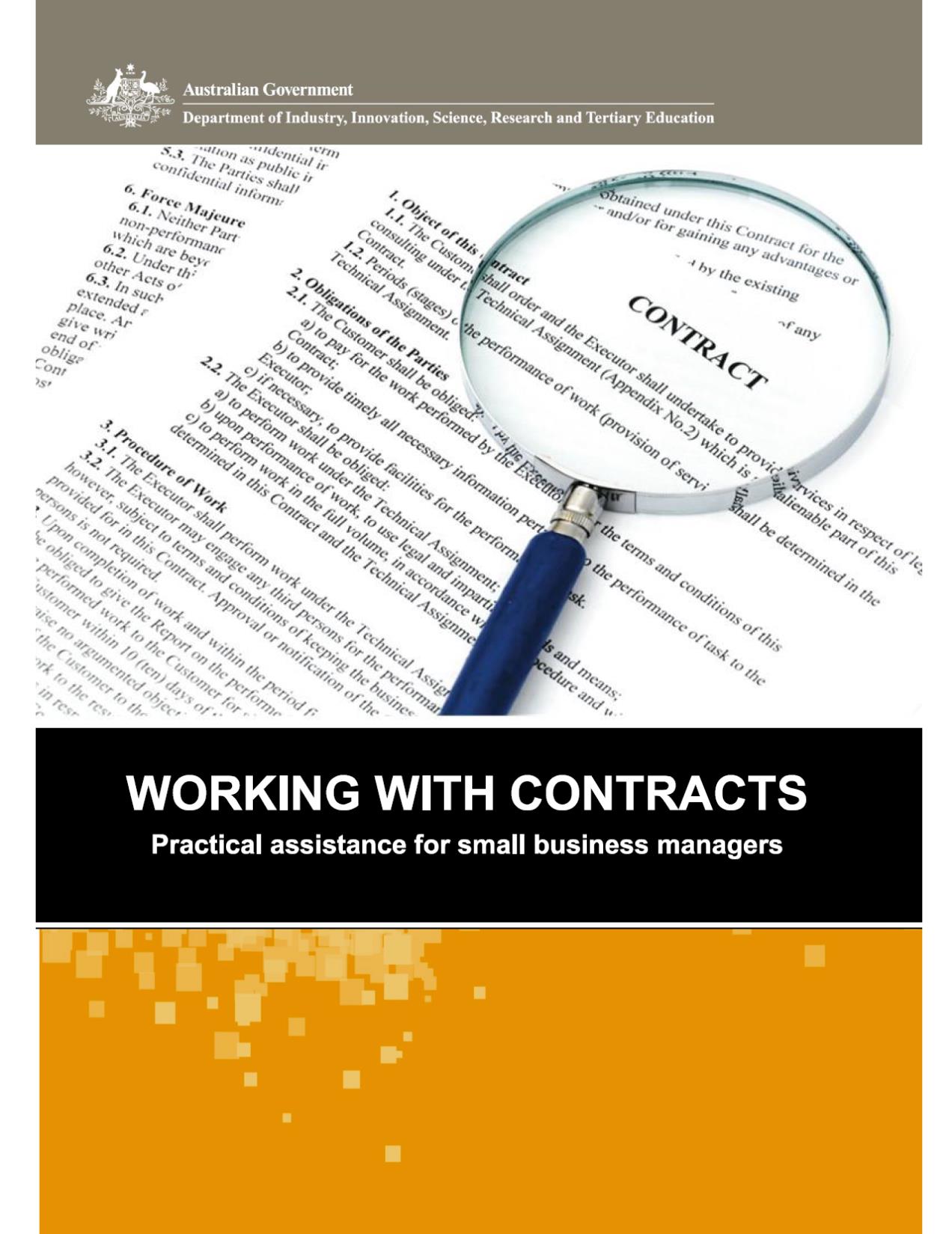Member Area Resources - Business
Working with Contracts
This 49 page guide aims to assist small business managers in using contracts confidently and appropriately as a commercial tool. It has been specifically designed to familiarise small business managers with the following issues:
- The essential ingredients of a contract
- More on ‘offer’: the lead up to the contract
- The different types of contracts
- Contracts: what’s in them Standard form contracts
- Specific small business relationships
- Understanding the paperwork: contract documents
- Contracts which hold information
- Intellectual Property and contracts
- Contracts completed using the internet
- Electronic Funds Transfer
- Resolving Disputes with contracts
- Bringing a contract to an end Summary checklist
- Additional sources of information for small business
Download the guide from the Australian Treasury or find out more here
Remember some basic rules
- Written contracts, where practical, are always the best form of contract to rely on.
- Keep records of any promises made to clients by parties acting for the business – this could be done on a standard form showing dates and times.
- You may find it useful to construct a model contract which can be filled in by the business at the time an agreement is made – this would ensure that you always have something in writing.
- Make sure that:
- anything signed by the parties making the agreement is the same as the spoken agreement made
- any changes made to an agreement are explained and documented with the other partiesall parties have a copy of the contract, along with any appropriate changes
- any difficulties or defects regarding a product or service have been brought to the attention of all parties.
- Take special care:
- when dealing with people who might be disadvantaged in terms of sight, hearing or language capabilities – so that they understand the contract, or at least have had legal advice
- to be aware that contracts are regulated by unconscionable conduct provisions under the Australian Consumer Law
- in expressing an opinion – particularly where it may be relied on as the basis of the agreement
- when dealing with competitors, not to agree to fix prices, share markets, rig bids or restrict outputs not to directly or indirectly fix the minimum price at which a person may resell goods, or to supply goods or services on condition that other goods/services be acquired from a third party.
- Read everything before you sign it.
- Seek professional advice where you are unsure of the meaning or consequence of any contractual issue, especially if:
- a substantial amount of money is involved
- your possible liability under the contract is substantial
- further similar situations are likely to arise
- the other party is using professional advice.
Source: Department of Innovation, Industry, Science and Research
